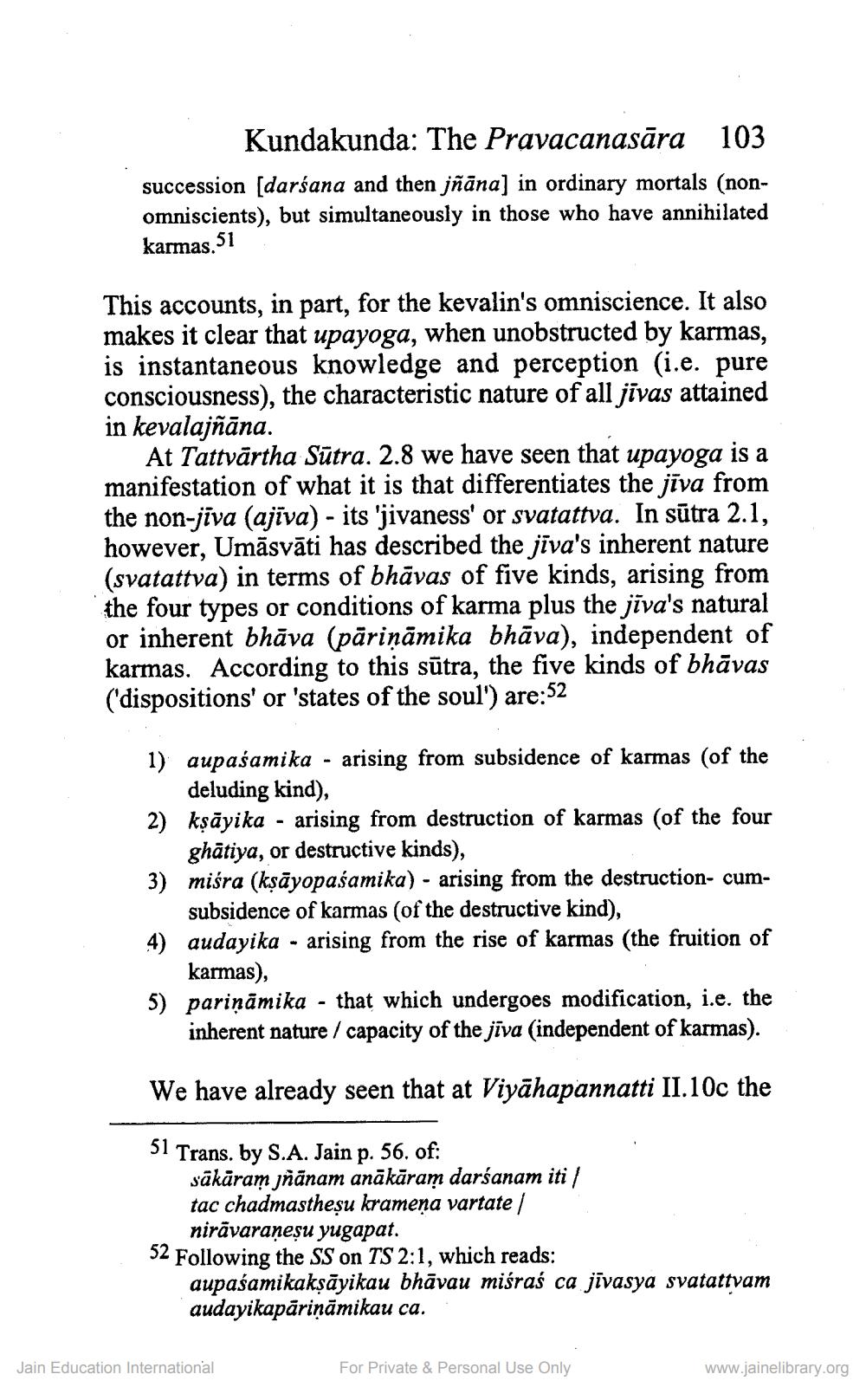________________
Kundakunda: The Pravacanasāra 103 succession (darśana and then jñāna) in ordinary mortals (nonomniscients), but simultaneously in those who have annihilated karmas. 51
This accounts, in part, for the kevalin's omniscience. It also makes it clear that upayoga, when unobstructed by karmas, is instantaneous knowledge and perception (i.e. pure consciousness), the characteristic nature of all jīvas attained in kevalajñāna.
At Tattvārtha Sūtra. 2.8 we have seen that upayoga is a manifestation of what it is that differentiates the jīva from the non-jiva (ajīva) - its 'jivaness' or svatattva. In sūtra 2.1, however, Umāsvāti has described the jīva's inherent nature (svatattva) in terms of bhāvas of five kinds, arising from the four types or conditions of karma plus the jiva's natural or inherent bhāva (pāriņāmika bhāva), independent of karmas. According to this sūtra, the five kinds of bhāvas ('dispositions' or 'states of the soul') are:52
1) aupaśamika - arising from subsidence of karmas (of the
deluding kind), 2) kṣāyika - arising from destruction of karmas (of the four
ghātiya, or destructive kinds), 3) miśra (ksāvopaśamika) - arising from the destruction- cum
subsidence of karmas (of the destructive kind), 4) audayika - arising from the rise of karmas (the fruition of
karmas), 5) pariņāmika - that which undergoes modification, i.e. the
inherent nature / capacity of the jīva (independent of karmas).
We have already seen that at Viyāhapannatti II.10c the
51 Trans. by S.A. Jain p. 56. of:
sākāram jñānam anākāram darśanam iti / tac chadmastheșu krameņa vartate /
nirāvaraņeșu yugapat. 52 Following the SS on TS 2:1, which reads:
aupaśamikaksāyikau bhāvau miśraś ca jīvasya svatattvam audayikapāriņāmikau ca.
Jain Education International
For Private & Personal Use Only
www.jainelibrary.org




